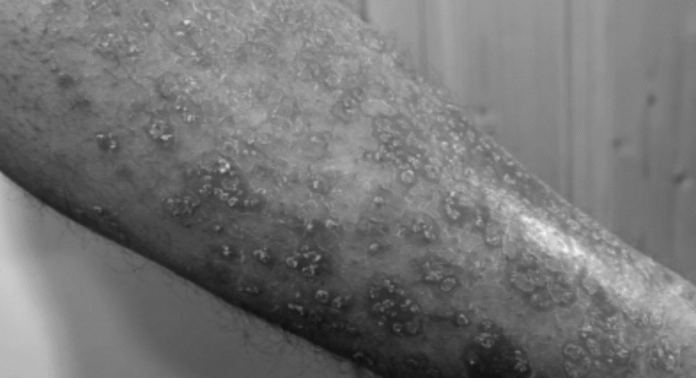New Delhi– Fat stored around the abdomen may significantly increase the risk of developing psoriasis—particularly in women—according to new research published Tuesday, underscoring the importance of weight management in preventing and treating the chronic skin condition.
Psoriasis is a long-term inflammatory disease that affects the skin and often impacts quality of life. While it’s well known that higher overall body fat can raise the risk of psoriasis, the role of fat distribution and genetics has remained unclear.
Now, researchers from King’s College London have found that central body fat, especially in the abdominal region, is more strongly associated with psoriasis than total body fat. Notably, this connection persisted even after accounting for genetic predisposition, suggesting that belly fat is an independent risk factor.
“Our research shows that where fat is stored in the body matters when it comes to psoriasis risk,” said lead investigator Dr. Ravi Ramessur of the St John’s Institute of Dermatology, King’s College London. “Central fat—especially around the waist—appears to play a key role. This has important implications for identifying individuals at risk and tailoring both prevention and treatment strategies.”
The study, published in the Journal of Investigative Dermatology, analyzed data from more than 330,000 participants, including over 9,000 individuals diagnosed with psoriasis. Researchers assessed 25 different markers of body fat using both conventional and advanced imaging techniques to determine their correlation with the condition.
The link between central fat and psoriasis remained consistent across multiple measurement methods and was significantly stronger in women, suggesting possible sex-specific biological pathways that may influence disease development.
The researchers noted that while the findings may not be universally applicable to all populations, they highlight the value of monitoring waist circumference in psoriasis risk assessments and promoting proactive weight management as part of a comprehensive care approach.
Further investigation is needed to understand the underlying mechanisms connecting abdominal fat and psoriasis, the study concludes. (Source: IANS)














